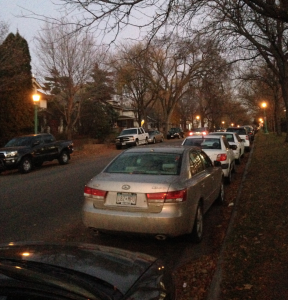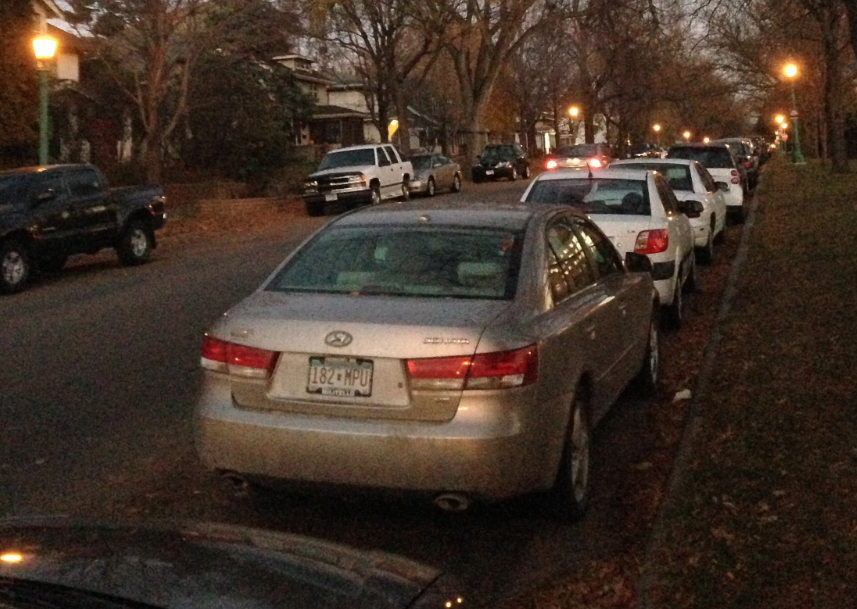St. Paul has begun its semi-annual street sweep, which lasts through November and will affect student parking around campus.
The sweeping will affect major streets, including Selby, Dayton, Marshall and Cretin avenues, which are all scheduled to be cleaned the week of Nov. 17. Grand and Cretin avenues are covered on a night route. All streets will be closed for parking during the cleaning hours.
According to the city of St. Paul’s website, the cleaning began Oct. 28 and will continue for the next four weeks. The city will place no parking signs on the designated streets 24 hours before cleaning begins. Once the signs are placed, no parking will allowed from 8 a.m. to 6 p.m. On Grand and Cretin avenues, overnight parking will not be allowed. Violators will be ticketed or towed.
William Carter III, Public Safety special projects manager, said these fines often cost students $140 or more, but he explained that the cost could be avoided.

“It’s a matter of one, people paying attention to the signs, and secondly, locating their cars to areas where they are permitted to park,” Carter said. “The signs are being posted for a reason, and it would be my hope that people read the signs and abide by them because it’s for their protection and safety.”
Carter said the Selby Avenue area is the most problematic for students. Finding alternative parking places around this area is difficult because many of the nearby streets are city permit parking only.
Students should park on streets that do not require a city permit, which are mainly located south of Summit Avenue. Safe streets include those around the intersections of Summit and Cretin avenues, Summit and Finn avenues, and Grand and Cleveland avenues, Carter said.
Junior Annie Cardozo said parking without the temporary restrictions is difficult enough, and she thinks the street sweeping will be a problem for students.
“I think it’s going to be a big issue,” Cardozo said. “There is going to be an overflow of cars parking on South Campus, and no one will be able to find parking spaces after noon.”
Carter suggested students check their cars often and look for signs that indicate a no parking zone. He said Public Safety’s Twitter account also tweets parking information.
The street cleaning is essential for environmental reasons. The city’s website said leaves, debris and other decomposing plant material are extremely harmful to lakes and rivers because aquatic plants and algae grow from decaying material. Carter said this material makes its way directly from the streets into water systems and can clog storm sewer systems if not properly cleaned.
“The water that goes into the streets goes into the storm sewer system and actually finds its way to the Mississippi River, and that’s where it is disposed of. It does not go through a waste-treatment plant,” Carter said.
Senior Katie Kacalek said she tries to park in campus lots whenever possible because street parking around campus is “extremely frustrating,” often resulting in her parking far away from her classes.
“I think I’ve been really lucky this semester getting to a space before the lot fills up, but there have been a couple of times when there were no spaces open, and I had to drive down to South Campus or even park by the river,” Kacalek said.
She said street parking around campus for late morning and afternoon classes is even more difficult.
“If you’re not there before 7:30 a.m., just forget about it,” Kacalek said. “There will be no spots open.”
Carter stressed the importance of students being aware.
“It’s not their personal driveway, it’s a city street, and there are things required by the people that park on that street. One of them is that they abide by parking regulations,” Carter said.
Lauren Smith can be reached at smit7607@stthomas.edu.



